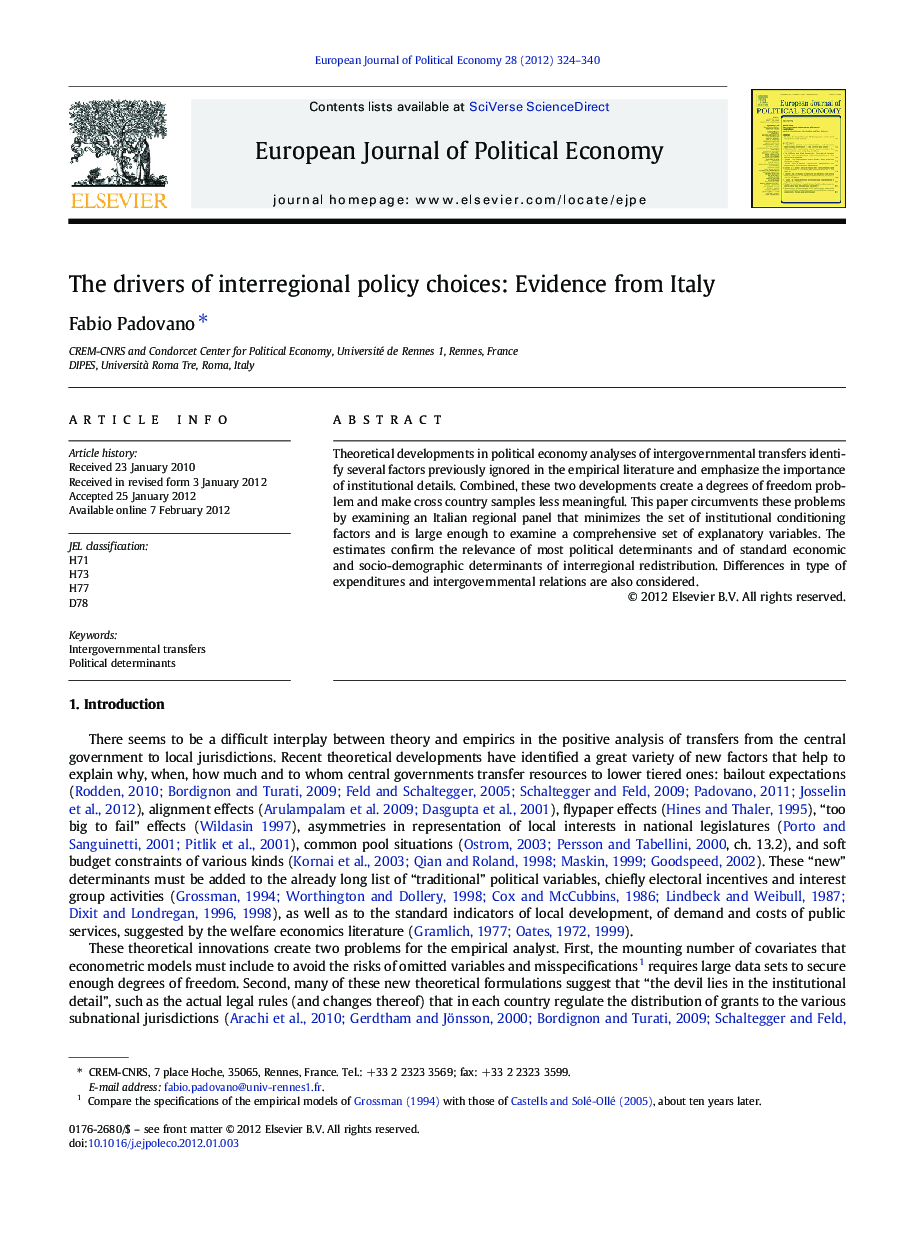| Article ID | Journal | Published Year | Pages | File Type |
|---|---|---|---|---|
| 5068150 | European Journal of Political Economy | 2012 | 17 Pages |
Theoretical developments in political economy analyses of intergovernmental transfers identify several factors previously ignored in the empirical literature and emphasize the importance of institutional details. Combined, these two developments create a degrees of freedom problem and make cross country samples less meaningful. This paper circumvents these problems by examining an Italian regional panel that minimizes the set of institutional conditioning factors and is large enough to examine a comprehensive set of explanatory variables. The estimates confirm the relevance of most political determinants and of standard economic and socio-demographic determinants of interregional redistribution. Differences in type of expenditures and intergovernmental relations are also considered.
⺠Relevance of political factors in determining distribution of regional grants. ⺠Electoral factors more relevant in RSOs, lobbying more important in RSSs. ⺠Swing regions attract more grants. ⺠Employment/elections drive current grants government stability drives capital ones. ⺠Horizontal equalization grants are sensitive to lobbying.
